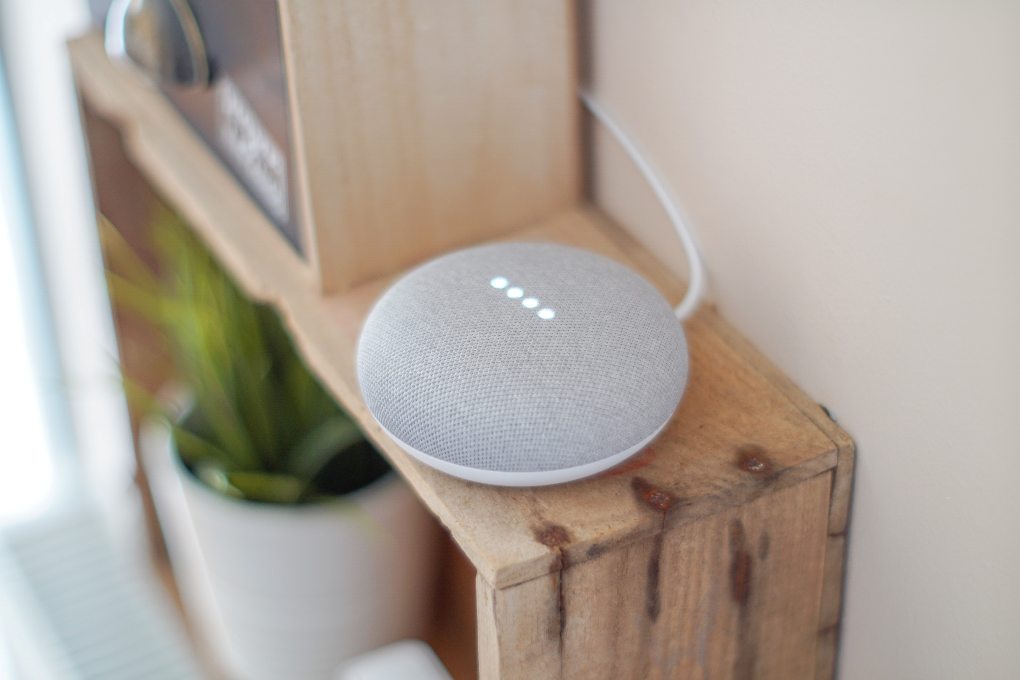We have become accustomed to the fact that technology has run an astounding sweep through everything. The digital capabilities of technology will continue to impact everything, including our lifestyle, business methods, educational practices, retail, and quotidian interactions. Voice has now become a pervasive way to communicate with and manage tech devices. It has moved from initial adoption in smartphones to other smart devices like smartwatches, cars, home appliances, etc. Our need for voice-enabled technology has increased the demand for smart speakers and has made them a staple in every smart household.
The long term potential for smart speakers is evident from the fact that few of the largest tech companies – Amazon, Google, Apple, and Microsoft are selling and continuously developing smart speakers. Analysts from RBC Capital Markets, in their report in December 2018 have found that adoption of smart speakers in the consumer market has made a big leap, from 2017. The data shows 21.5% of Americans owned a voice-activated speaker in 2017, which had grown to 41% in 2018. Juniper Research predicted that the overall usage of digital voice assistants will triple by 2023, bringing up the number of these devices close to 8 billion.
Role of data centers in voice-enabled assistance
As “Hey Siri”, “OK Google”, and “Hey Cortana” become a part of our routine, we forget to acknowledge the data centers at the back end, which make all of this possible. The increasing reliance on voice-enabled technology is also increasing the demands on data centers considerably, which is being tackled by edge computing.
Smart speakers and voice assistants provide an instantaneous answer to almost anything. This is enabled by edge data centers and Artificial Intelligence (AI) algorithms. Edge Computing enables voice interfaces, allowing the devices themselves to compute and process some information, making the AI-powered interface swift and interactive.
Voice-enabled devices do not constantly record audio and send it to the central data center. It would not only be a privacy concern but also a waste of computing, energy, and network resources. This would also slow the responsiveness of the system by introducing latency. Instead, the voice interfaces are activated by a wake-word (Alexa, Siri, etc) and only these inputs go to the server, where it is interpreted and evaluated by the algorithm and a response is generated. The entire process works expeditiously, thanks to edge computing.
It is quite apparent that smart speakers and voice assistants would not be able to function without the fast processing and huge capacities edge data centers provide.
Voice searches becoming more expansive
The usage of voice assistance and adoption of smart speakers has surged in the last few years and will continue to increase in the near future.
Increase in the count- Statistics show that there were over a billion voice searches per month in 2018. And it is obvious that instances of voice search and demand for smart speaker will only increase, more so since it is the convenient option when a computer is not handy, such as while driving.
Spreading across demographic- According to forecasts, 2.2 million kids under the age of 11 will use smart speakers. Albeit they are not the buyers, they are the users. Which increases the scope as a child can use the speakers for inquisitiveness and assignments dozens of times during a day, most of the times much more than an adult
These trends only mean that edge data centers will have to multiply to meet the requirement of voice technology, in terms of storage and AI processing power, as voice interfaces become more prevalent. They can be added to virtually anything whether it is a router, an appliance or even a lamp. The devices will become a lot smarter and responsive but they will still rely on edge data centers for functioning.
Reference:
https://datacenterfrontier.com/the-rise-of-smart-speakers-and-voice-could-boost-data-centers/

